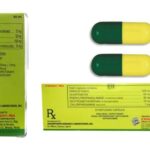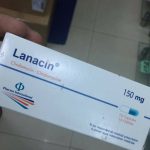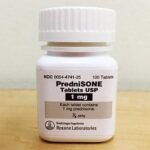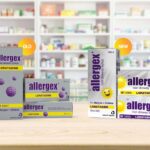Junior-angin: Uses, Benefits, Dosage, Side Effects, Interactions

Junior-angin is a range of herbal pain relievers for sore throats and cough in children, developed specifically for the needs of children and young adults. It offers a child-friendly, gentle and effective solution when children suffer from sore throat and irritating cough.
Sore throats are most often caused by a viral infection like the common cold. These illnesses show up more commonly during winter but can happen year-round. In addition to a sore, scratchy throat, a cold virus can cause your child to have a fever, runny nose, and cough.
Junior-angin comes in 3 variants:
- Junior-angin syrup: This is a 2-in-1 solution that not only helps sore throats but also fights irritating cough. It is alcohol and sugar-free and can already be used by very young children from the age of 1. Junior-angin syrup contains two proven natural ingredients, Icelandic liana, and marshmallow, both known for their protective properties of mucous membranes that create a protective film on the irritated mucous membranes of the mouth and throat.
- Junior-angin lollies: Junior-angin lollies are a medicinal product for sore throats and to protect the mucous membranes of the mouth and throat in children from 3 years of age. As the main ingredient, Icelandic moss forms a vegetable film on the mouth and throat mucosa when sucked and protects them. The sucking process causes an even distribution of the active ingredients. Calcium pantothenate serves as a care complex for the mucous membrane. Junior-angin lollies additionally contain vitamin C.
- Junior-angin lozenges: Junior-angin lozenges are a medicinal product with delicious strawberry flavour for sore throats and to protect the mucous membranes of the mouth and throat in children from 4 years of age. They contain Icelandic lichen and dexpanthenol. The lozenges soothe irritated mucous membranes, relieve sore throat and form a healing protective layer on the mucous membranes in the oral cavity and in the throat, thus preventing further penetration of harmful microorganisms (pathogens).
All junior-angin products have a deliciously fruity taste – strawberry in lozenges and lollies and cherry in syrup – which makes them very popular with children.
Dosage of Junior-angin syrup, lollies, and lozenges
- Junior-angin syrup dosage: The recommended dose of Junior-angin for children from 1 to 6 years is 5ml depending on the need 1-2 times a day; children and adolescents from 6 to 16 years should take 10 ml twice a day.
- Junior-angin lollies dosage: Adults and children from 3 years of age suck a lollipop every 2-3 hours if needed, max 3 lollipops per day. If the sore throat persists for more than 2-3 days, you should consult a doctor.
- Junior-angin lozenges dosage: Children older than 4 years take one lozenge after 2-3 hours (but not more than 3 lozenges in 24 hours).
Junior-angin side effects
People using Junior-angin may experience the following reported side effects:
- Abdominal pain
- Burning inside the mouth
- Heartburn
- Itching
- Nausea
Junior-angin appears to be safe when taken as lozenges and lollies and cherry in syrup for children and adults with dry cough and sore throat, provided they follow the recommended dosage for no more than 1–2 weeks.
Does Junior-angin interact with any medication?
There are no known drug interactions from taking Junior-angin, but it does contain fibrous mucilage compounds (lichenan and isolichenan), which may decrease the absorption of medications and reduce their.
Can a pregnant woman take Junior-angin?
No, due to lack of data, those who are pregnant, breastfeeding, or are on any medications should avoid taking Junior-angin in all forms.
Contraindications: Junior-angin in all forms if you are hypersensitive to any of the ingredients in the preparation; if you are intolerant to the sweetening substance maltitol.
Junior-angin and Future Sore throats
Taking Junior-angin does not prevent sore throats and cough from reoccurring, The American Academy of Otolaryngology offers the following tips to avoid developing a sore throat:
1. Avoid smoking or exposure to secondhand smoke. Tobacco smoke, whether primary or secondary, contains hundreds of toxic chemicals that can irritate the throat lining, especially in children.
2. If you have seasonal allergies or ongoing allergic reactions to dust, molds, or pet dander, you’re more likely to develop a sore throat than people who don’t have allergies. Treatment of seasonal or environmental allergies can decrease this risk.
3. Avoid exposure to chemical irritants. Particles in the air from the burning of fossil fuels, as well as common household chemicals, can cause throat irritation. Wearing a mask may be helpful to decrease exposure, in certain situations.
4. If you experience frequent sinus infections or have chronic post nasal drip, drainage from your nose or sinuses can cause throat irritation as well. Rinsing the nose with salt water may help decrease this drainage.
5. If you live or work in close quarters such as a child care center, classroom, office, dormitory, prison, or military installation, you may be at greater risk of a sore throat because viral and bacterial infections spread easily in environments where people are in close proximity. Minimizing contact with persons who are, or maybe, sick and washing your hands frequently can help prevent the spread of infection.
6. Maintain good hygiene. Do not share napkins, towels, and utensils with an infected person. Wash your hands regularly with soap or a sanitizing gel for at least 10 – 15 seconds.
7. If you have reduced immunity (from HIV or diabetes, steroid treatment or chemotherapy, a poor diet, or extreme fatigue, for example), you may be more susceptible to infections in general.





